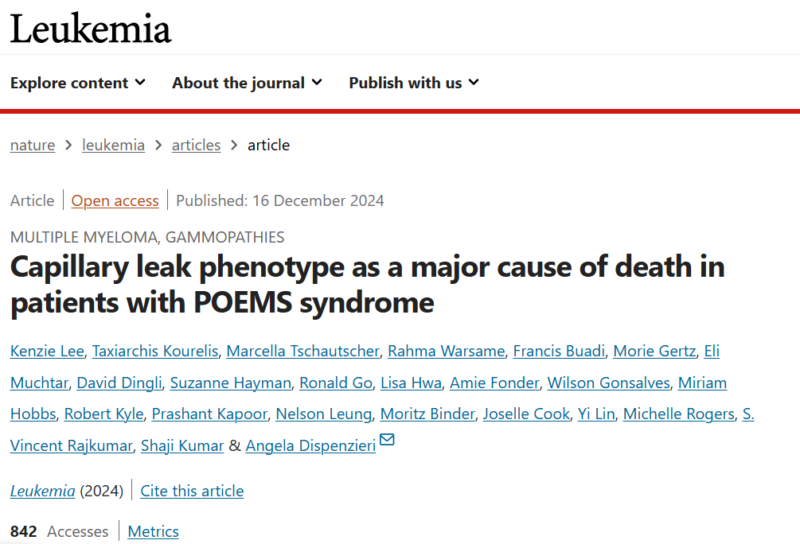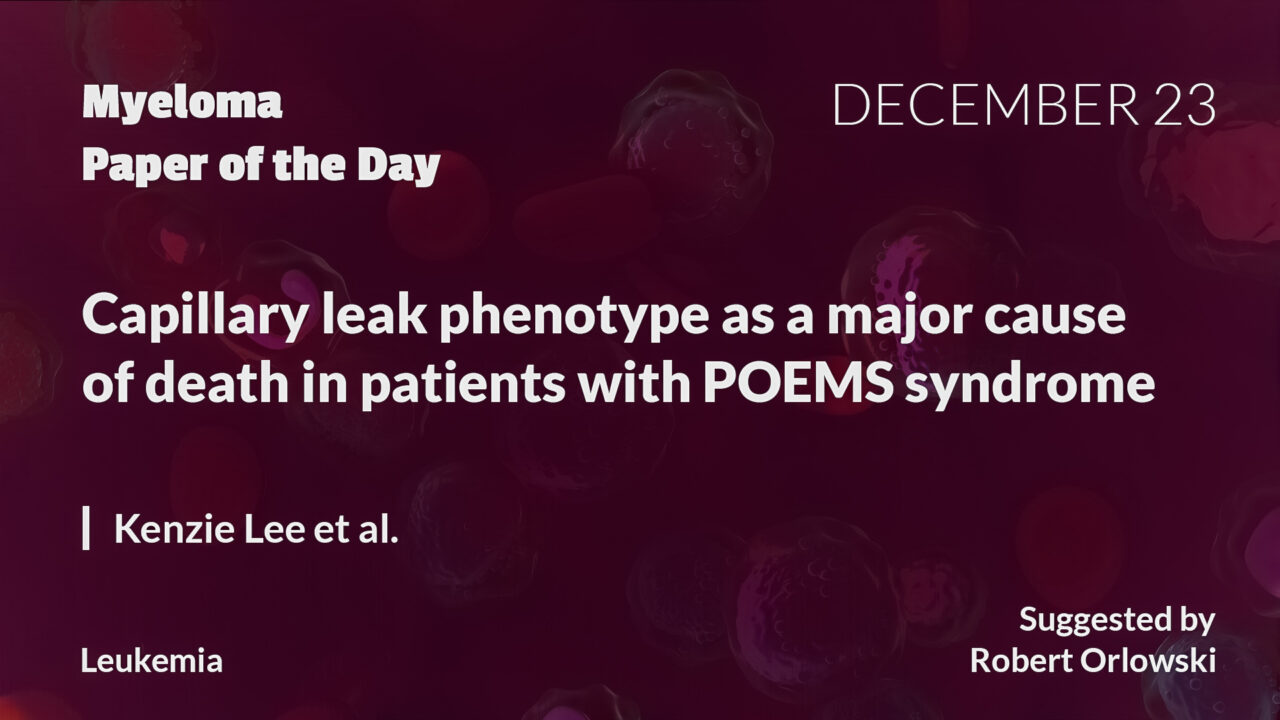Robert Orlowski shared a post on X:
“Myeloma Paper of the Day: Capillary leak phenotype is a major cause of death in POEMS syndrome patients, and is characterized by refractory ascites, effusions and/or anasarca ultimately resulting in hypotension, renal failure and cardiopulmonary arrest.”
Capillary leak phenotype as a major cause of death in patients with POEMS syndrome
Authors: Kenzie Lee, Taxiarchis Kourelis, Marcella Tschautscher, Rahma Warsame, Francis Buadi, Morie Gertz, Eli Muchtar, David Dingli, Suzanne Hayman, Ronald Go, Lisa Hwa, Amie Fonder, Wilson Gonsalves, Miriam Hobbs, Robert Kyle, Prashant Kapoor, Nelson Leung, Moritz Binder, Joselle Cook, Yi Lin, Michelle Rogers, S. Vincent Rajkumar, Shaji Kumar and Angela Dispenzieri.

More posts featuring Robert Orlowski.
Robert Orlowski, M.D., Ph.D., holds multiple positions at The University of Texas MD Anderson Cancer Center, including Chairman, Ad Interim Director of Myeloma, and Professor of Medicine in the Departments of Lymphoma/Myeloma and Experimental Therapeutics within the Division of Cancer Medicine.
Additionally, he chairs the SWOG Barlogie/Salmon Myeloma Committee, which is part of the National Clinical Trials Network, dedicated to advancing new therapies and understanding the biology of myeloma.
Dr. Orlowski’s expertise lies in both clinical practice and scientific research, with a particular focus on translating laboratory discoveries into effective treatments for patients. He investigates drug resistance mechanisms in myeloma and seeks to identify predictive biomarkers for treatment response.
Notably, his past contributions include leadership roles in developing proteasome inhibitors like bortezomib and carfilzomib, as well as monoclonal antibodies such as daratumumab and elotuzumab.


